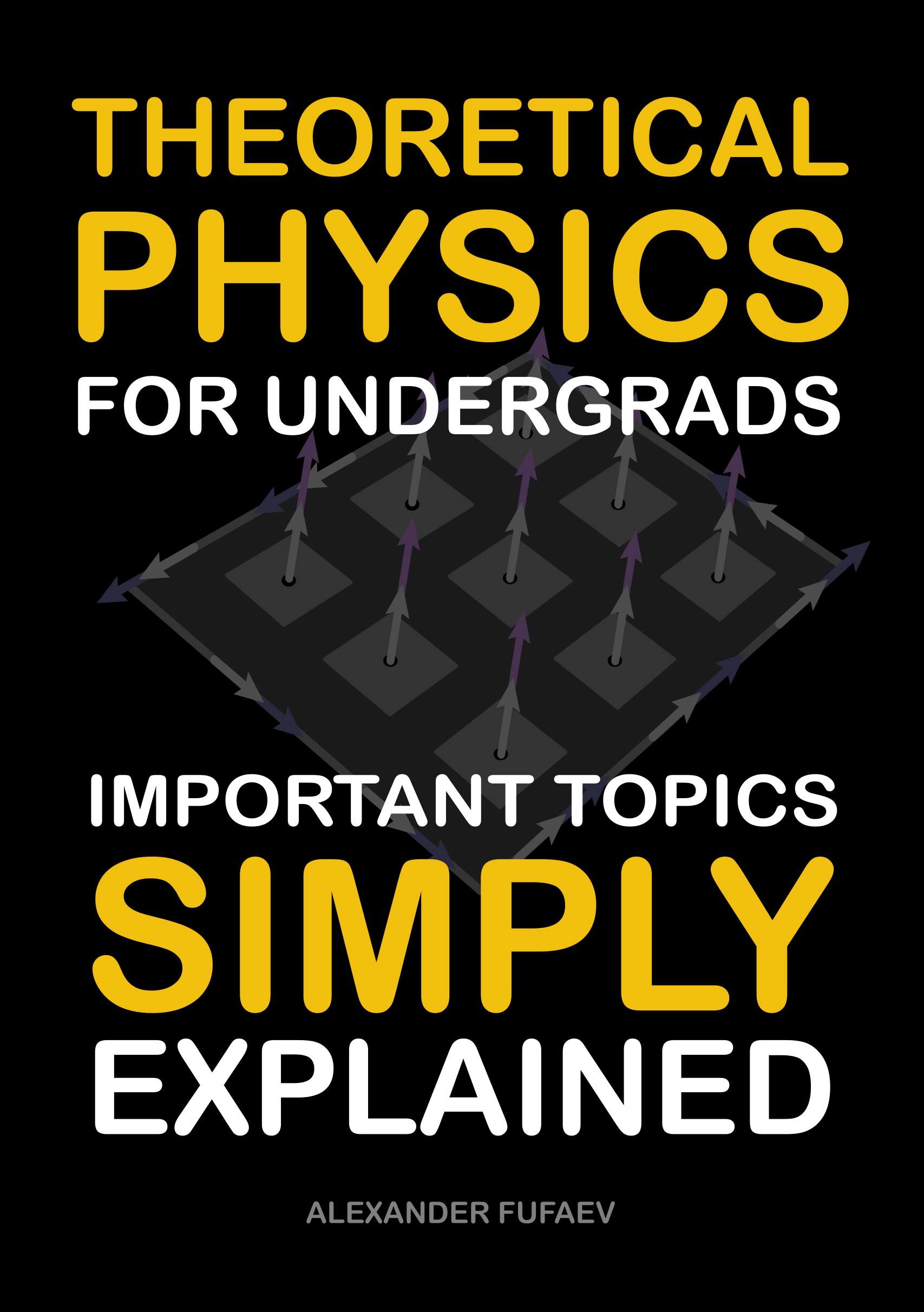Physics and Diary of Alexander Fufaev
About Alexander Fufaev
My name is Alexander Fu-fa-eV (Russian: Александр Фуфаев). At the age of 13, after my parents' divorce, I immigrated from Russia to Germany with my mother and sisters. In Germany, I attended school and later studied physics at Leibniz University Hanover. I belong to the most extreme minimalists in the world. Additionally, I enjoy breaking out of the rat race. I am open and tolerant towards all people, without aligning myself with any political direction. As an minimalist, I have learned an important lesson: It's not possessions that enrich my life, but the people I meet and the free time that I have.
As a freelance physicist, I help students better understand physics on this website and on my English YouTube channel. This is how I earn money to finance my minimalist lifestyle. By purchasing my eBooks on my website, you are essentially giving me time, which I can use to produce even more educational content for you.
In addition to physics, I love to improve myself personally in all kinds of areas of life (finance, health, life satisfaction, mindset, sustainability, love, self-confidence). I record my progress and insights in my diary.
Experimental Physics
If you are a student or a physics novice, or even if you are studying medicine, electrical engineering, or another course where you need the basics of physics, then the following list of experimental physics courses is perfect for you. You don't need to be familiar with vectors, integrals, or derivatives, as you will learn all of that directly in the first course, »Mathematics for Physics«.
- Mathematics for Physics
Learn the mathematics you need to master in order to engage in basic physics. Here you will learn about vectors, derivatives, integrals, and differential equations. - Classical Mechanics
Here you will learn about physical quantities such as acceleration, energy, force, and momentum, and how these quantities are related. - Optics
Here you will learn the basics of ray and wave optics. With this knowledge, you can describe the behavior of light in our everyday lives. - Thermodynamics
Learn how temperature, volume, pressure, and other macroscopic state variables of systems are related. - Electricity and Magnetism
Here you will learn about the interaction between electric charges and the influence of magnetic fields on moving charges. - Quantum Physics
Here you will learn about the behavior of atomic particles such as electrons and protons, and why they sometimes behave like particles and sometimes like waves. - Theory of Relativity
Here you will learn about time dilation and length contraction, as well as how to illustrate these effects in a spacetime diagram. - Evaluate Physics Experiments
Here you will learn how to carry out a physical experiment, document it and then evaluate it statistically.
Theoretical Physics
The following course list is intended for physics students and advanced learners who are familiar with vector, integral, and differential calculus and are ready to explore theoretical physics.
- Advanced Mathematics for Physics
Here you will learn the basics of multidimensional differentiation and integration as well as tensors – everything you need to understand theoretical physics. - Advanced Classical Mechanics
Here you will learn, for example, about the Euler-Lagrange equation and the Lagrange formalism. - Electrodynamics
Here you will learn, for example, about the Maxwell equations and electromagnetic waves. - Quantum Mechanics II
Here you will learn, for example, about the Schrodinger equation and what commutators, observables, and the bra-ket notation are. - Solid State Physics
Here you will learn about electrical and thermal transport, crystal structure, and interactions in solid matter.
